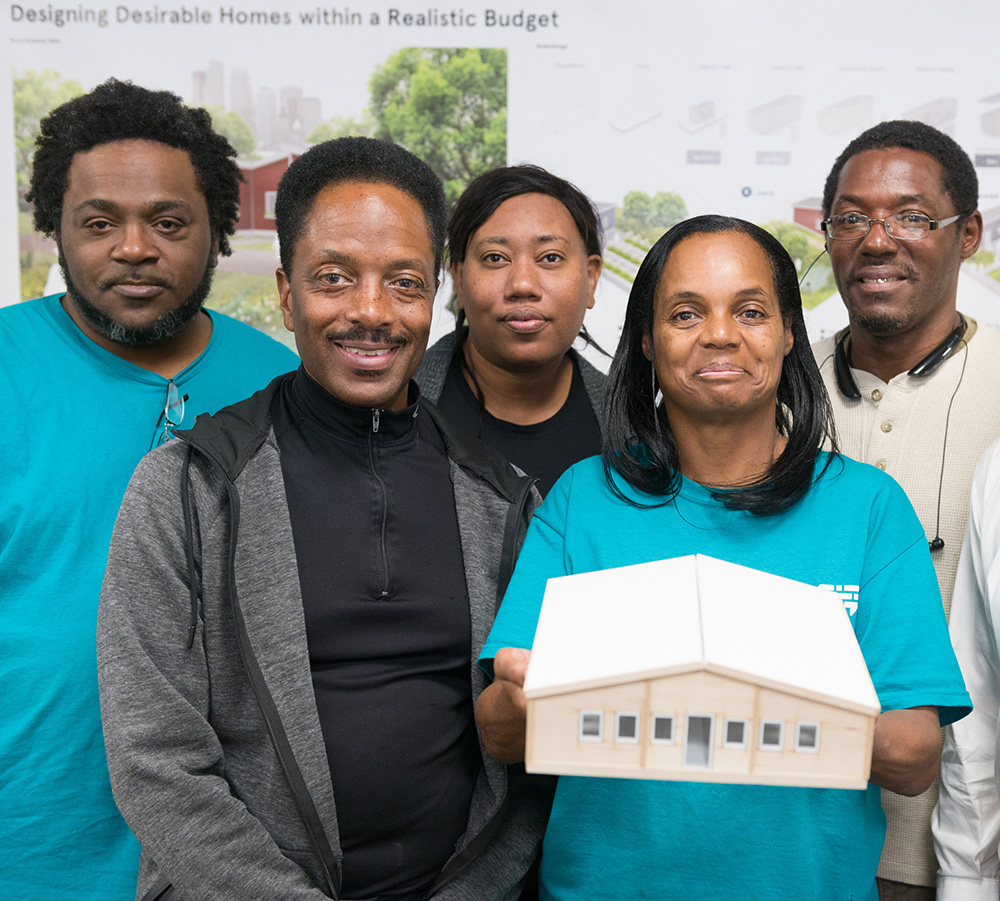Designed and Led By Residents
Envision is unique. Our project not only wants to house and serve people experiencing homelessness—it is led by them. Envision will be a beacon that shows what a group of people experiencing homelessness can do, and what happens when our community stands alongside them.
Envision is more than just a tiny home village, it is a place where people experiencing homelessness can elevate themselves to be designers, problem-solvers, and decision-makers for the community they created.
“People in our community have been working on issues of social change for many years. Now we [people who’ve experienced homelessness] want to have a say in what happens.”
Part of a Bigger Movement
By building our initiative from the ground up, underrepresented communities aim to organize themselves in an innovative way, creating a space for people who have experienced homelessness to advance equitable housing practices and systems. In that sense, our initiative is about much more than housing people: it also positions an underrepresented community to shape housing policy. Most importantly, Envision works to change how society views people in a homeless situation. Individuals experiencing homelessness are frequently stereotyped as worthless bums, criminals, or addicts – people who our society can systematically ignore. Envision breaks that stigma by being a place where people with lived experience of homelessness are celebrated as valuable experts, designers, and leaders.
Designing With The Broader Homeless Community
From the beginning, Envision has prioritized the perspectives of people who face housing instability and as a result, numerous individuals from the homeless community helped design Envision. Early exploratory work at Street Voices of Change meetings informed the needs and desires of the homeless community that eventually set the direction of Envision Community. Later financial modeling of sustainable housing … generous individuals helped us understand the true economics of homelessness. We learned about various housing subsidies, spending money while living on the streets, and how to make the rent. More importantly, we learned about the systems that keep people homeless for those impacted by those systems. These individuals drove our financial modeling. Participants in a study of housing barriers taught what it means to be low barrier housing. We created our shared values with the input of more than 100 people with lived experience of homelessness. Envision is now preparing again to engage a broad section of the homeless community to evaluate the fully built prototype unit.
Meet Our Envision Leaders
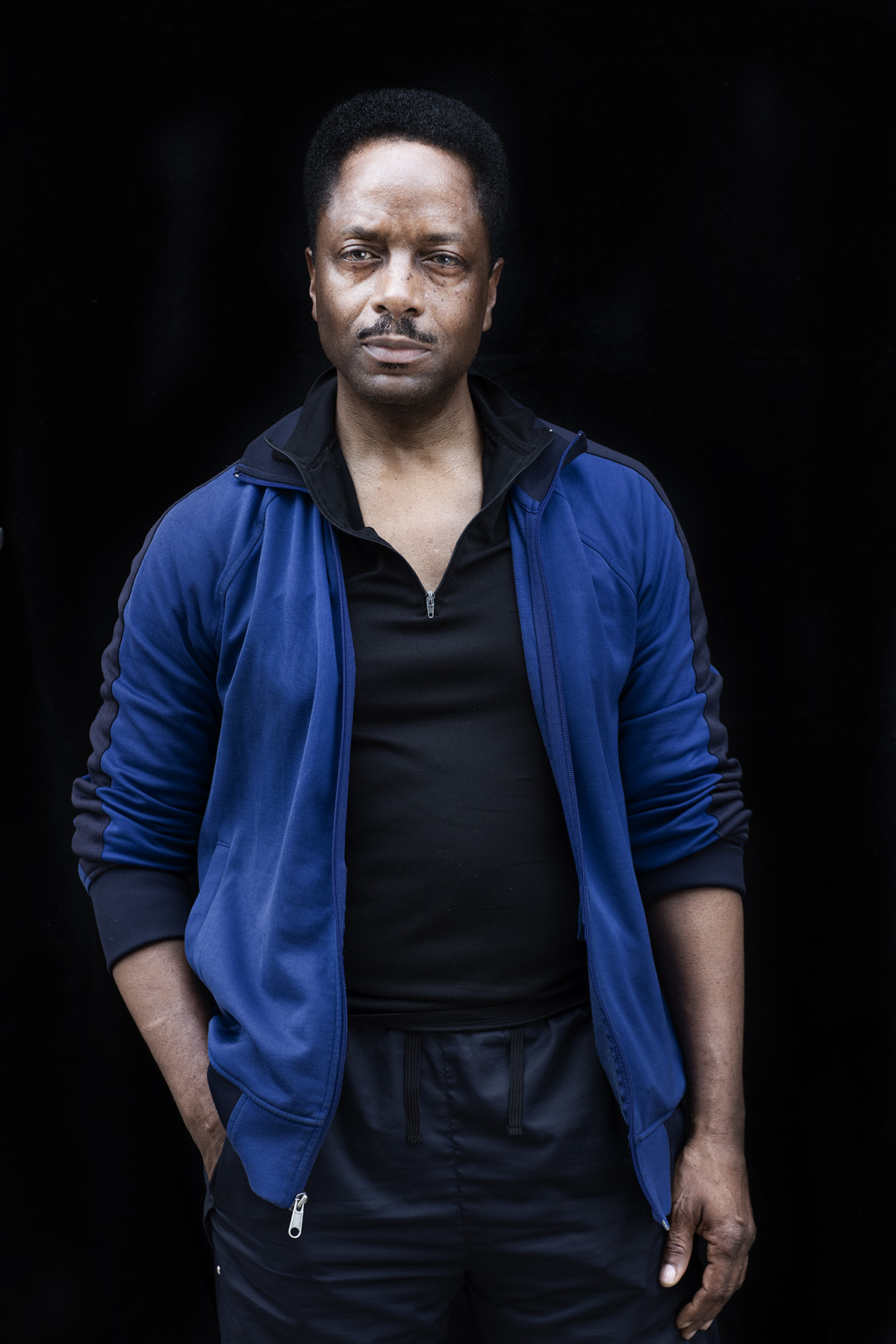
Dewayne Parker
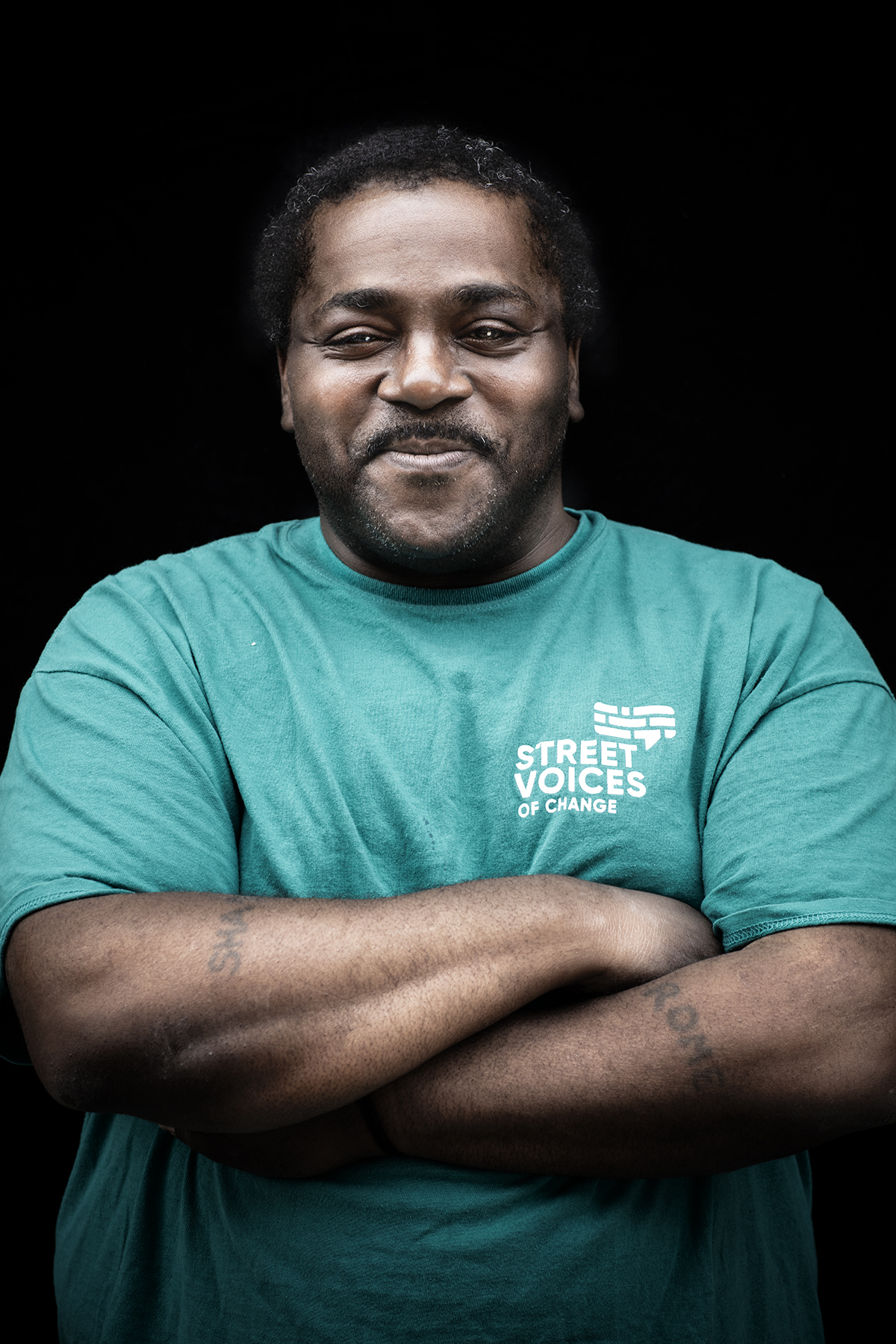
Rome Darring
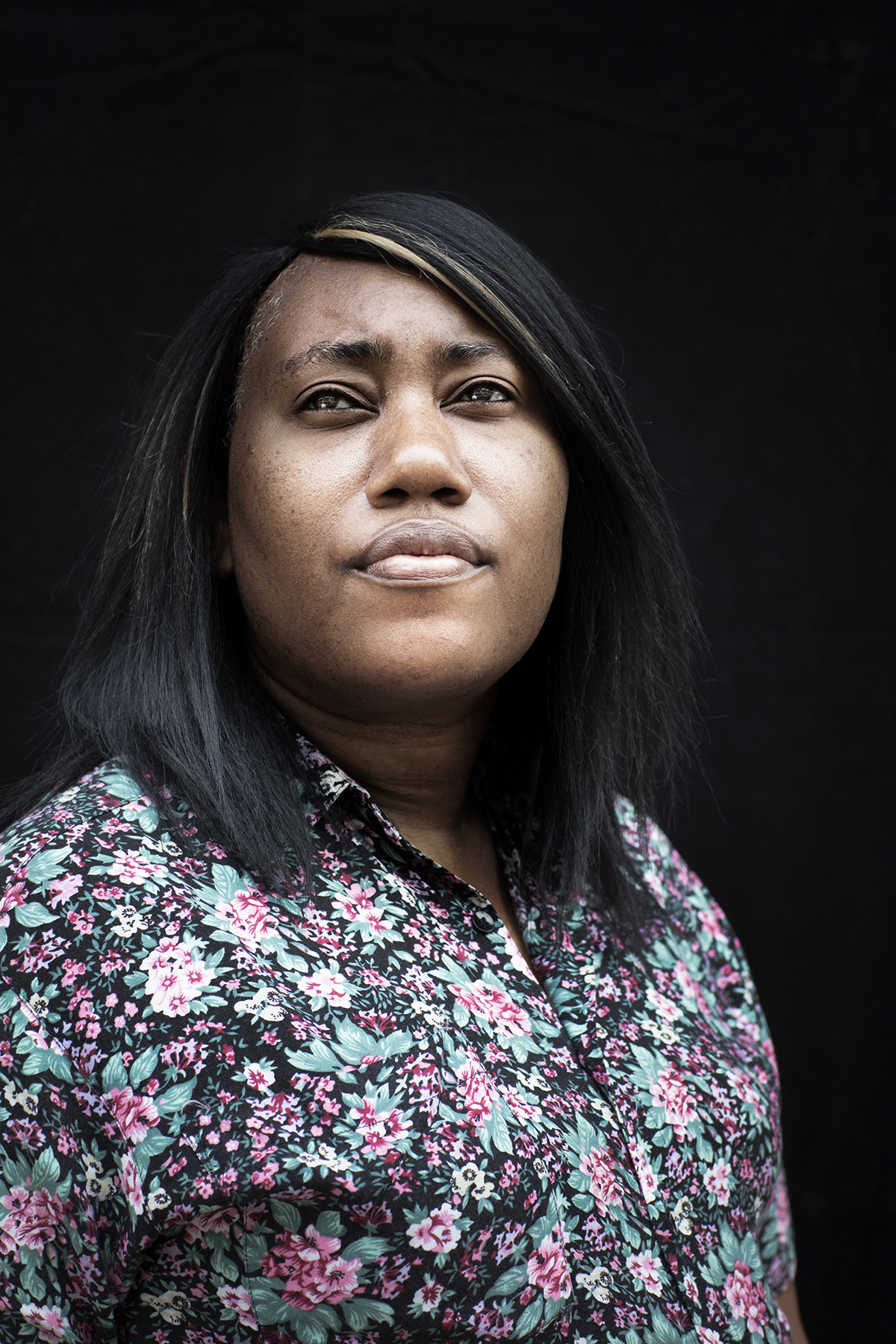
Junail Freeman
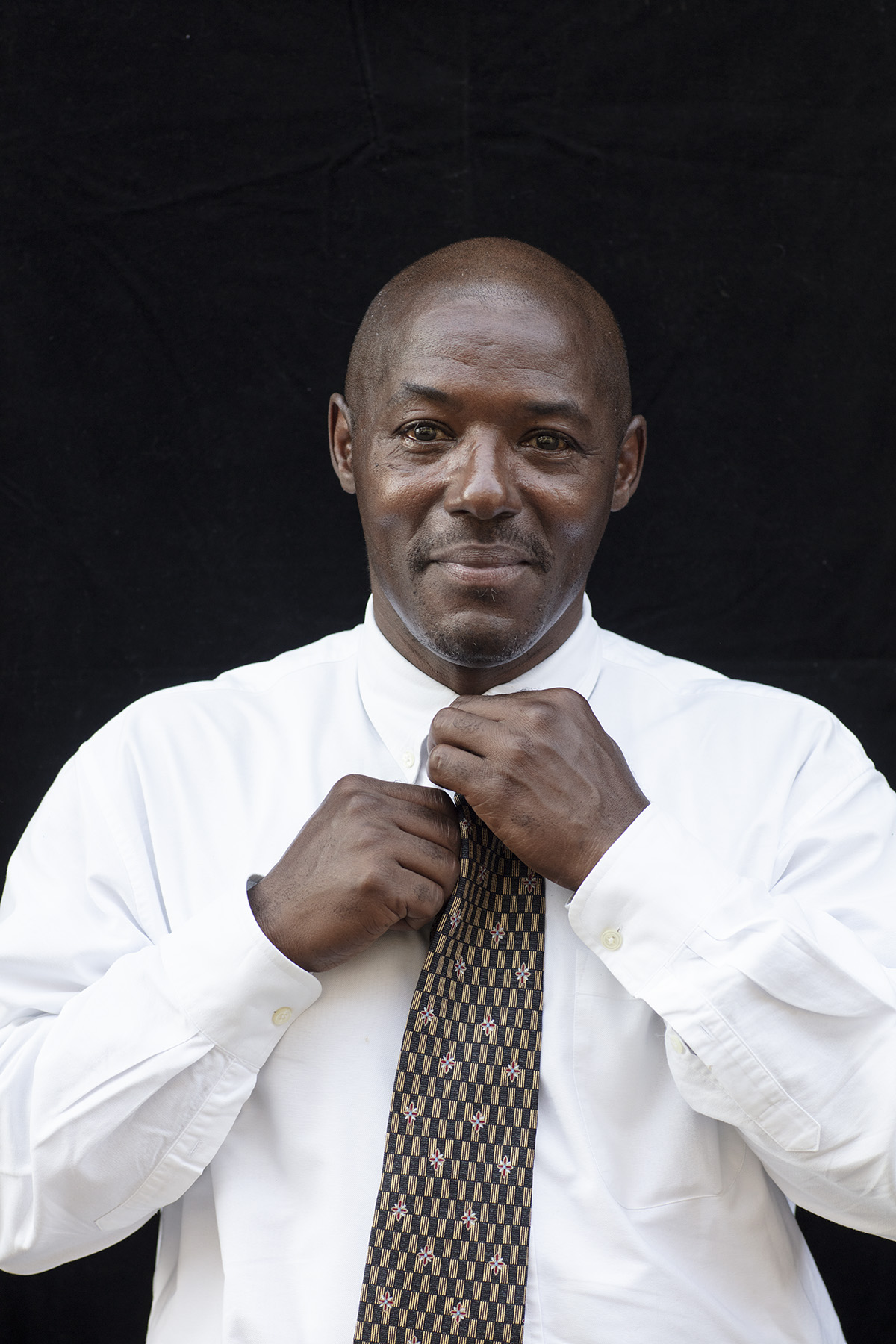
Freddy Toran
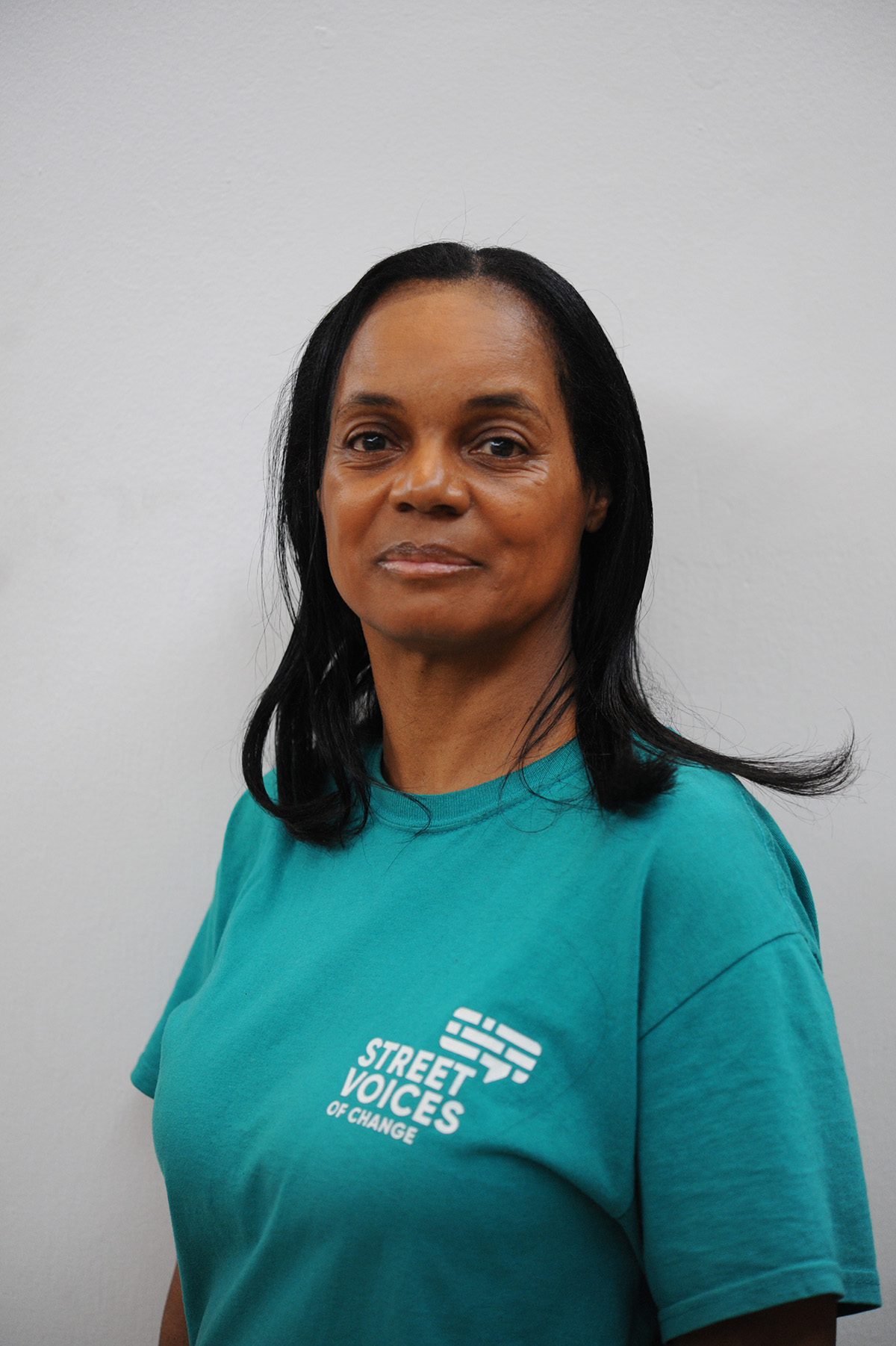
Sherry Shannon
A Collaborative Vision
Although Envision was designed and led by people experiencing homelessness, it is also a collaborative vision drawing on perspectives from across our community.
Envision Community arose from a truly collaborative effort among a diverse group of organizations with unique knowledge and resources to contribute to the effort. Click here to learn more about Envision’s collaborative members.
The collaborative created Envision by initially interviewing a wide group of stakeholders including people experiencing housing instability, people who have never experienced homelessness, health plans, healthcare providers, housing experts, and government officials over a one-year period. Those interviews taught us that our community needs a new type of housing that is extremely affordable and truly low barrier. More importantly, we also learned that housing alone is not enough. A supportive community essential to create stability and belonging for people who become housed. With this insight, Envision Community – not Envision Housing – was born. The collaborative then created a gallery exhibit describing our initial proposal for Envision Community. Over 250 individual key stakeholders in our community toured the gallery and gave us feedback on how to improve our concept.
The collaborative then hosted a series of co-creation sessions with potential residents to determine how Envision should run. These co-creation sessions tackled key questions about how Envision’s intentional community should run. This culminated in the creation of our operating handbook which describes the operations at Envision.
At the same time, University of Minnesota Architecture Students collaborated with Envision Leaders to partially build a prototype microhome as part of the Catalyst Workshop at the University of Minnesota. Members from across our community saw this mock build and gave feedback at a public showing highlighting what was accomplished during the Catalyst Workshop.
A team, led by Jacob Mans from the Minnesota Design Center, then built the full-size prototype unit with a group of community volunteers, many with lived experience of homelessness.
After construction, the prototype unit moved to Elim Church where more community members have attended a series of socially-distanced tours to give us additional feedback about Envision’s extremely affordable units.
Meanwhile, Envision Community Leaders have given over 40 presentations to various groups, including homelessness advocates, city government officials, neighborhood organizations, faith communities, business districts, housing boards of directors, architectural associations, public health organizations, and healthcare institutions—ultimately reaching thousands of people in our community.
In Appreciation
We express our appreciation to the organizations whose members participated in interviews, meetings, exhibit tours, show unit tours, or invited us to present our proposal to their group. Thank you for providing valuable insights and feedback that informed this vision:
Community Partners
- Aeon
- American Indian Community Development Corporation
- American Institute of Architects, Minnesota Chapter
- American Planning Association, Minnesota Chapter
- Bethel University
- Bremer Bank
- Brighton Development
- Catholic Charities
- Central Lutheran Church
- CommonBond Communities
- Community First Village
- Community Health Improvement Partnership
- Corporation for Supportive Housing
- Cushman Wakefield
- East Town Business Partnership
- Family Housing Fund
- Federal Reserve Bank
- First Universalist Church of Minneapolis
- Footprint Project
- Graves Foundation
- Greater Minnesota Housing Fund
- Greater Twin Cities United Way
- Habitat for Humanity
- HealthEast Foundation
- Hearth Connection
- Hennepin Healthcare Foundation
- House of Charity
- Interfaith Outreach
- Kraus-Anderson
- Launch Ministry
- LISC Twin Cities
- McKinsey & Company
- McKnight Foundation
- Medtronic Foundation
- Mentor Planet
- Metro Transit
- Mill City Press
- Mortenson
- Minneapolis College of Art and Design
- Minneapolis Downtown Council
- Minneapolis Foundation
- Minnesota Indian Women’s Resource Center
- Minnesota Coalition for the Homeless
- Minnesota Oral Health Coalition
- Otto Bremer Trust
- Plymouth Congregational Church
- Pohlad Family Foundation
- Rehkamp Larson Architects
- Simpson Housing
- Odilia Catholic Community
- Odilia Social Justice Committee
- SW Corridor Transportation Coalition
- The Lift
- Thrivent
- United Way, Greater Twin Cities
- Urban Land Institute
- Westminster Presbyterian
- YMCA
- 2025 Plan East Town-North Loop Development Work Group
City Government
City of Minneapolis:
- City Council
- Community Planning and Economic Development
- Health Department
- Housing Policy and Development
- Mayor’s Office
- Neighborhood and Community Engagement
City of Edina:
- Mayor’s Office
- City Manager’s Office
City of Richfield
Hennepin County
- Hennepin County Attorney’s Office
- Center for Innovation and Excellence
- Community Corrections and Rehabilitation Community Offender Management
- Community Works Department
- Continuum of Care
- Healthcare for the Homeless
- Health and Human Services
- Office to End Homelessness
- Public Health
- Resident and Real Estate Services
- Transit-Oriented Development
- Workforce Development
State Government
- Minnesota Department of Human Services
- Minnesota Department of Health
- Minnesota Housing
- Prevent and End Homelessness
Federal Government
- Centers for Medicare and Medicaid Services
- Housing and Urban Development
Hennepin Healthcare
- Access Clinic
- Analytics Center of Excellence
- Clinical Informatics
- Community Health
- Coordinated Care Center
- Crisis Residence
- Emergency Department
- General Internal Medicine
- Health Policy
- Hennepin Healthcare Foundation
- Hennepin Healthcare Research Institute
- Mission Effectiveness Committee
- Pediatrics
- Population Health
- Social Determinants of Health Committee
- Social Work
Health Plans
- Blue Cross Blue Shield
- HealthPartners
- Hennepin Health
- Medica
- Minnesota Council of Health Plans
- Optum
- UCare
- United Healthcare Group
Healthcare
- Minnesota Medical Society Public Health Committee
- Twin Cities Medical Society
Public Health
- Minneapolis Health Department
- Minnesota Department of Health
- Minnesota Public Health Association
- U of M School of Public Health
- U of M Humphry School of Public Affairs
Health, Healthcare & Research Leadership
- Mayo Clinic Transform Conference
- Robert Wood Johnson Interdisciplinary Research Leaders
- Safety Net Innovation Network
Courses that Informed Our Work
- CSH and Capital Link’s Capital Expansion for Health and Housing Partnerships
- CSH Supportive Housing Academy
- DHS Housing Program Overview
- Greater Minnesota Housing Fund Health and Housing Summit
- Minneapolis Community Connections Conference
- Symposium for Goodness’ Sake, Community First Village

